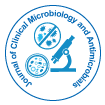

Ardin Marius OUAYOUE NOUTONG
Statement of the Problem: Current malaria diagnostic methods require blood collection to detect the parasite. Blood withdrawal requires trained personnel and increases the risk of blood-borne infectious disease. Non-invasive sampling will greatly enhance the diagnosis of malaria in remote areas. Saliva is readily available and easy to collect but has not received much attention hitherto. Molecular methods such as PCR show great benefit using saliva. But the long turnaround time, high cost and availability only in well-equipped laboratories render this technique inadequate for routine diagnosis. Recently, a new, rapid, simple, and sensitive molecular technique called Loop-mediated isothermal amplification (LAMP) was developed. The purpose of this study is to assess the accuracy of saliva-based rapid molecular diagnostic methods notably LAMP and real-time LAMP when compared to PCR. Methodology & Theoretical Orientation:
Saliva and blood samples were collected and analyzed by nested PCR, LAMP, and Real Time (RT) LAMP, targeting the species-specific nucleotide sequence of the small subunit ribosomal RNA gene (18S rRNA) of P. falciparum.
Findings:
When nested PCR with blood was used as the standard, LAMP of saliva and blood showed both a sensitivity of 43.90% and specificities of 68.75% and 57.62% respectively. RT- LAMP saliva and blood showed sensitivities of 49.38 % and 48.21% respectively and specificities of 94.11% and 66.67% respectively. When compared to Saliva PCR as standard Saliva-LAMP and Saliva-RT-LAMP showed sensitivities of 70.23% and 73.49% respectively and specificities of 62.5% and 76.47% respectively.
Conclusion & Significance:
LAMP and Real Time LAMP technologies match the WHO recommendations for an ideal diagnostic test for developing countries. Considering the field adaptability of LAMP technology and the ease of saliva sampling, further research into the method is worthwhile to better optimize the protocols for parasite DNA detection.